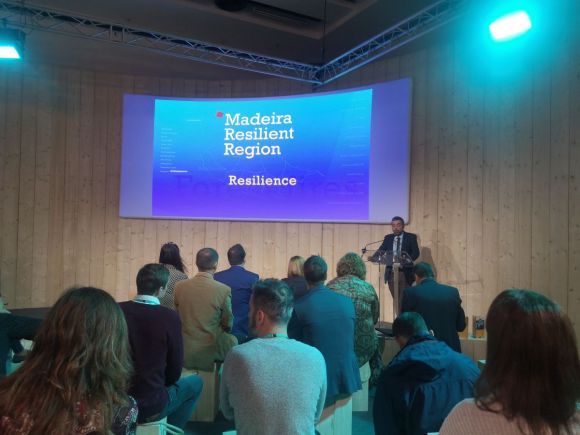
It has been 216 years since the huge disaster in the island of Madeira occurred. Because of huge flood almost 1000 people died. Very similar situation also occurred in 2010 on the island. However, the citizens of Madeira did not had the support of the European Union 216 years ago that they had in 2010. Natercia Xavier, citizen of Madeira and a participant of EU Regions Week, said that this support is extremely important, though creating a resilient region is not only about building infrastructure and making investment. Xavier thinks that it is also really important to give value to the history and the disaster that has happened.
Natercia Xavier remembers how her art, theatre and dance students could not attend classes because the building where they usually had trainings was flooded. After a while classes begun to take place again. But even after many months afterwards disaster her students and she were still frightened.
These are the memories of people who suffered huge losses caused by disaster.
According to Xavier, this was a disaster for the citizens of Madeira because of the consequences that followed due to people’s daily activities. Therefore, not only the region or landscape is going to become more resilient, but also the population. As she states, such memories could be a tool to improve the resilience of Madeira because this is the experience that helps us see ourselves as part of the bigger picture. This is also raises awareness about all the tools that are being developed to increase security.
Such statement made by Xavier only helps us understand once again that exactly we, the residents of our home Earth, are responsible for it to be a pleasant place to live for all of us.
The island of Madeira has had problems in the past with floods due to geophysical conditions, urban growth, soil erosion and unsustainable land use which generated high-risk scenarios. As for the future, studies are predicting more extreme weather changes.
Madeira has also faced a serious threat of forest fires that results in negative impact on soil erosion and slope instability.
While Madeira was at risk, the European Union programming period of 2014-2020 was the right time for action. The Operational Program of Sustainability and Efficient Use of Resources (POSEUR) was planned to support the prevention and management of natural hazards in Madeira under a systemic and structural perspective.
In the period 2014-2019, 37 projects (global investment 147 million euros, Cohesion Fund total contribution 121 million euros) with high technical conditions were approved in four specific domains. 11 projects for river regularization and flood control, 13 projects on landslide prevention and mass movement control, 6 projects for forest fire prevention and 7 projects focusing on planning and monitoring.
The risks related to flooding, landslides or forest fires were significantly reduced in critical locations including the protection of strategic infrastructures. The island and the communities are adapting to deal with the natural hazards intensified by climate change new catastrophes.
Written by: Milda Liutkeviciene (Lithuania)
Edited by: Iskra Tsankova (Bulgaria)



